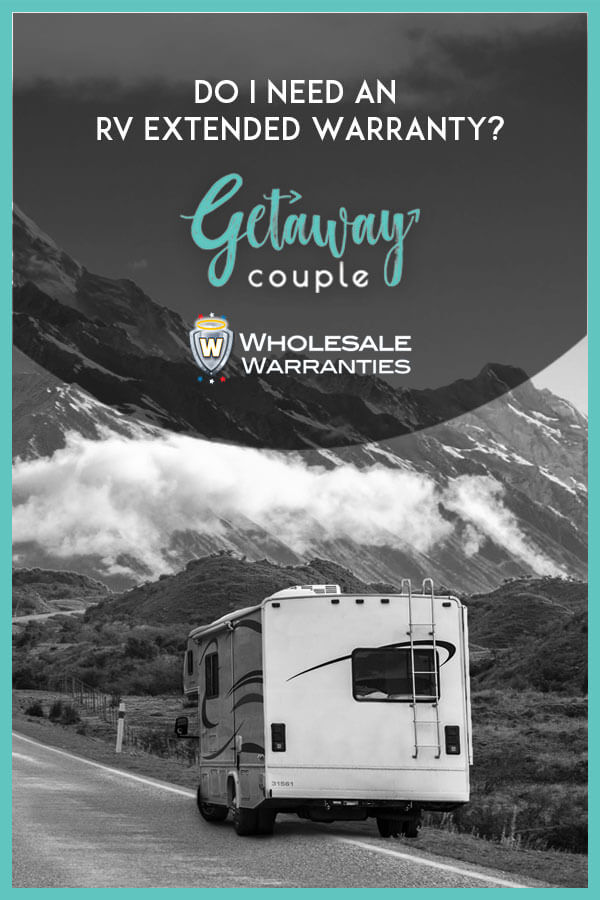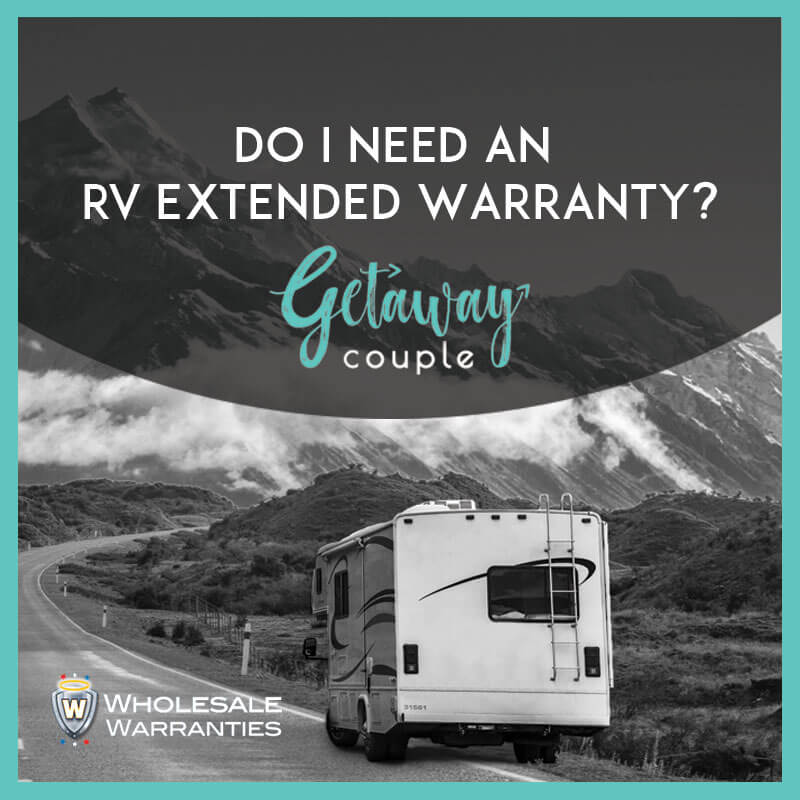Table of Contents Show

RV Extended Service Contracts, commonly known as RV warranties, are a great way to protect your travel budget from unexpected breakdowns. Extended service contracts are separate from warranties, as the term warranty implies an affiliation with the original manufacturer of the unit. We’ll use these terms synonymously throughout this post when referring to extended service contracts.
Warranty protection is great, but is it necessary? What are the chances of my RV actually breaking down?
Although protecting your rig is a personal choice that won’t be right for every traveler, the unfortunate fact is that motorhomes don’t have the best track record when it comes to breakdowns. In reality, 3 out of 10 RVs will have a major breakdown by their second year on the road. One repair alone can dismantle a travel budget with an average cost around $300 for every hour that your camper is in the shop.
That breakdown statistic only rises the longer your rig is on the road, jumping to a surprising 8 out of 10 RVs by the fifth year, and nearly every RV by the eighth year on the road.
So, what exactly does an RV extended warranty cover?
RV warranties cover the mechanical and electrical components of your rig. Within the policy, there are often different coverage levels for personalization depending on your needs. Generally speaking, you can expect coverage to extend to your powertrain, such as your engine and transmission, as well as your coach components like appliances, heating and cooling systems, water systems, and more. High levels of coverage will also pay for repairs to items like your leveling jacks, slide-outs, luxury electronics, and solar panels.
Even the most extensive extended RV warranty on the market will have exclusions. Understanding what’s not covered is an integral part of finding coverage that’s right for you. When you’re working with a dealer or broker, make sure they’re upfront about the limitations of the policy they’re offering. Review the “terms and conditions” of your coverage, which will have a list of exclusions.
Does it matter where I purchase an extended service contract?
The quality of your policy will vary depending on where you purchase it. Finding a program that’s fully-insured is the first step to reliable coverage. A fully insured program means that your claims will be paid even if the warranty provider goes out of business.
Beyond finding a fully-insured provider, find out what other RVers are saying about the company. Check the reputations on customer advocacy organizations, forums, and blogs to see who the RV community recommends for reliable coverage.
How can I make sure my warranty claims get paid?
If you’ve never had a warranty before, claims can be a headache, especially when you’re dealing with an unexpected failure. The last thing you want to worry about when you’re stuck on the side of the road is if your warranty provider will pay out your claim.
This checklist provides digestible steps on how to file a successful RV extended warranty claim. Simply put, the most important part of the claims process is getting a pre-authorization number from the provider before any work begins on your rig.
At Wholesale Warranties, we have an in-house claims specialist and specified warranty specialist available to help you through the lifetime of your policy. Although most claims are resolved within the first phone call, having a company that will go up to bat for you during a difficult claim can be the most valuable asset of any policy.
What additional benefits and coverage are important to have?
Some warranties can be highly personalized with additional benefits and coverage. First things first, read your policy from front to back. Get a grasp on any ancillary benefits already included in your warranty, such as emergency roadside assistance and trip interruption benefits.
Although a great base to have on any policy, there are limits to ancillary benefits. You may want to consider full-coverage options for things like emergency roadside assistance and tire and wheel protection. The road isn’t always smooth, and the additional peace-of-mind is worth it.
Consequential loss coverage is often an overlooked add-on that can devastate any travel budget if not in place. “Consequential damage” refers to damage on a covered part caused by the action or inaction of a non-covered part. These failures are excluded by every base contract, but some providers will give you the option for this additional coverage.
While the cost of RVs has skyrocketed with advanced tech and upgraded components, the cost of getting coverage on your investment gives an affordable alternative to costly repair bills. It’s truly an extra layer of protection to maintain consistency in your budget and lifestyle. Although you don’t legally need a warranty to drive on the road with an RV, can you afford not to?






